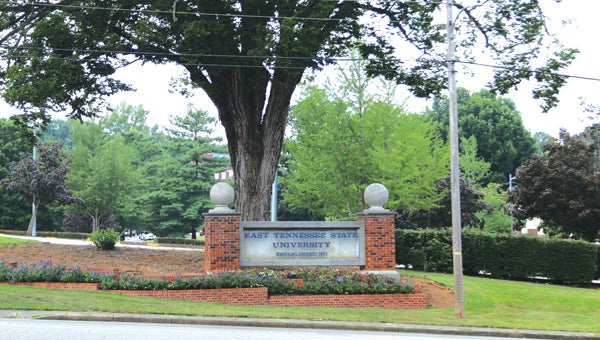ETSU meeting students where they are
Published 10:02 am Tuesday, May 28, 2024
|
Getting your Trinity Audio player ready...
|
Academic librarians who specifically focus on serving graduate students now have an important resource to help them keep up with advances in their field.
The first issue of the Journal of Graduate Librarianship (JGL) was published in December 2023 – with production of the fall 2024 issue now in full swing – under the leadership of editors Dr. Wendy Doucette and Jill Cirasella. Doucette is an associate professor and the graduate research and instruction librarian at ETSU’s Charles C. Sherrod Library. Cirasella is an associate professor, scholarly communication librarian and university liaison at the Mina Rees Library of the City University of New York.
This new peer-reviewed, open-access journal is hosted on ETSU’s Digital Commons, the online institutional repository of faculty and student research, and may be found at https://dc.etsu.edu/jgl/.
People may think of librarians as being “all things to all people.” But there is a niche for academic librarians who specialize in serving graduate students.
The difference between undergraduate and graduate librarians, according to Doucette, is andragogy, or the methods of teaching and helping adult students learn.
“Undergraduate librarians have four years to see students, so they start scaffolding basic things with first-year students, knowing they could see them again,” she said. “With graduate students, we know that we might see them again, but it’s not likely.
“So grad students get served at the point of need. Here’s a busy person – an adult who has a day job, who may have a family and who might have learned previously about research – who is really here to say, ‘Tell me this one thing.’”
While there are many other scholarly journals for academic librarians, JGL is the only one specifically serving graduate librarians.
This allows the editors to do some non-traditional things, Doucette said. In addition to the traditional, peer-reviewed academic articles, JGL features a practitioner panel and a social media component that invites readers to respond to prompts and questions.
“We also have a section that’s sharing our stories, because we didn’t want to have barriers,” Doucette said. “Let’s say you are an ‘accidental’ graduate librarian, which can happen. We want to hear from people who are beginning or have something to say but don’t want to say it in an academic way; we don’t want to scare them out of publishing.
“We want to say, ‘You’re part of this community. We want to hear your voice.”
The community of graduate librarians, and the beneficial exchange of information that it brings, is growing not only through JGL, but also through a biennial conference, “Transforming Libraries for Graduate Students,” which was recently hosted for 2024 by ETSU. Both the journal and conference are now international, with the community developing a presence in Canada.
Doucette, who was instrumental in organizing and hosting this year’s conference, said that all participants who gave a conference presentation regarding graduate students, faculty or library programs were invited to submit a writeup of that presentation to share in the 2024 edition of JGL.
“We are as pleased as can be to be breaking new ground with this journal, because it’s a community that is already established through the conference, and we keep picking up more people,” Doucette said. “It’s good to know the community is growing and there is a resource where you can ask, ‘How do I help business students as opposed to law students?’, ‘How do you deal with online programs versus on-ground?’ or “How do you help a student who hasn’t had to write a paper in 10 to 30 years?’”
Doucette and Cirasella were delighted with the response to the inaugural issue.
“Two thousand downloads in the first nine weeks was just amazing,” Doucette said. “We have gotten many unexpected, heartwarming letters of appreciation from people in the grad community we don’t even know who said, ‘Wow, there really was a need for this. I’m so glad to have this.’ It’s been nice also to know that we haven’t stepped on anybody’s toes because nobody else was in this space.
“One of the things Jill and I want to do is take graduate librarianship and make it a thing, so that people will remember that they need to support students at the appropriate level. They need to have the ability to serve them where they want to be served.”





